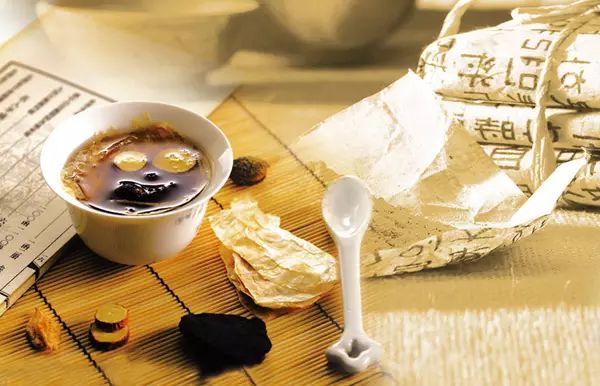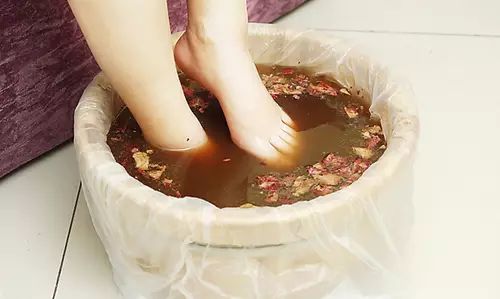 The tongue is an organ that can reflect the state of blood fullness in the body through its semi-transparent mucosa. In tongue diagnosis, this is referred to as observing the tongue quality (舌质, shé zhì). It can indicate whether our body’s vital energy (正气, zhèng qì) is sufficient. For example, if the blood in the body is abundant, the tongue quality becomes light red; if the blood is insufficient, the tongue quality turns pale white. When the internal temperature decreases, the tongue appears white, and when the temperature rises, it turns red… Through these observations, we can gather a lot of information about our health. Therefore, if we can learn to observe the tongue, we can essentially understand the general condition of our body at the first moment. This is very important for each of us.
The tongue is an organ that can reflect the state of blood fullness in the body through its semi-transparent mucosa. In tongue diagnosis, this is referred to as observing the tongue quality (舌质, shé zhì). It can indicate whether our body’s vital energy (正气, zhèng qì) is sufficient. For example, if the blood in the body is abundant, the tongue quality becomes light red; if the blood is insufficient, the tongue quality turns pale white. When the internal temperature decreases, the tongue appears white, and when the temperature rises, it turns red… Through these observations, we can gather a lot of information about our health. Therefore, if we can learn to observe the tongue, we can essentially understand the general condition of our body at the first moment. This is very important for each of us.
What type of constitution do you have based on your tongue appearance?
★ Qi Deficiency Constitution (气虚体质, qì xū tǐ zhì)
Individuals with a Qi deficiency constitution have teeth marks on their tongue. If the tongue coating covers the entire tongue, revealing no tongue quality, it indicates heavy internal dampness. An increasingly thick tongue coating suggests increasing dampness in the body. If the tongue is round, slightly swollen, and has teeth marks, it often produces two lines of saliva when extended, indicating significant internal dampness.

□ Dull complexion, poor physical strength, easily fatigued
□ Sensitive to cold, easily catches colds
□ Prone to abdominal bloating after eating
□ Loose stools
Classic Spleen Tonifying Formula for Qi Deficiency Constitution
Formula: Huai Shan Yao (怀山药, 90g), Yi Yi Ren (薏苡仁, 150g), Qian Shi (芡实, 30g).
Method: Grind the above herbs into powder (can be done at a pharmacy), take one tablespoon daily, and cook with millet to make porridge.
Note: Continue for half a month to a month for significant effects on tonifying the spleen.
★ Anemia Constitution (贫血体质, pín xuè tǐ zhì)
If the edges of the tongue are very pale, it indicates mild blood deficiency. If the tongue coating does not cover the entire tongue and the tongue quality appears very pale, even slightly transparent, this is a typical sign of blood deficiency.

□ Dizziness when standing up after squatting for a short time
□ Poor memory
□ Insomnia, with some experiencing vivid dreams
□ Mental exhaustion, reluctance to think
□ Poor memory
□ Bruising in many parts of the body
□ Frequent dry throat
□ Dry, rough skin
□ Easily fatigued
□ Body temperature aligns with the external environment
Angelica Blood Nourishing Chicken Soup
Formula: Dang Gui (当归, 6g), Chuan Xiong (川芎, 3g), Gou Qi Zi (枸杞子, 6g), one whole chicken.
Method: First blanch the chicken in hot water to remove blood scum, then place the herbs and chicken in the same pot, add clean water, and simmer to make soup.
This soup is excellent for nourishing blood, especially for women; regular consumption can quickly improve blood deficiency.
★ Blood Stasis Constitution (瘀血体质, yū xuè tǐ zhì)
Typically, the tongue tip may show signs of stasis, such as stasis spots or engorged veins under the tongue, but these symptoms do not usually appear together. However, if any one of these symptoms is present, it indicates blood stasis in the body. If multiple symptoms occur together, it suggests a more severe condition.

□ Poor memory
□ Bruising in many parts of the body
□ Frequent dry throat
□ Dry, rough skin
□ Visible blood vessels on the skin
□ Frequent pain in certain areas of the body
Small Formula for Treating Cardiac Blood Stasis
If a person shows only symptoms of blood stasis on the tongue, taking San Qi (三七, 0.5g) with Xi Yang Shen (西洋参, 0.5g) will quickly improve the condition. There are many methods to resolve blood stasis, but this combination is a very effective small formula for treating cardiac blood stasis.
Formula: San Qi powder and Xi Yang Shen powder, each 0.5g.
Method: Take orally daily with plain water.
★ Yin Deficiency Constitution (阴虚体质, yīn xū tǐ zhì)
If a person does not have an external pathogen but has a thin or absent tongue coating with a red tongue, this tongue appearance can generally be diagnosed as a Yin deficiency constitution. A very thin or absent tongue coating (atrophy) is also a sign of Yin deficiency. Many people have geographic tongue, where patches of coating are missing, exposing the red tongue quality; this tongue appearance is mostly caused by Yin deficiency.
From the tongue appearance, elderly individuals often have very red tongues with many deep cracks, and they experience discomfort when eating spicy foods, all of which are signs of Yin deficiency.

□ Quick temper, rapid pulse
□ Warm palms and soles
□ Poor sleep, night sweats
□ Dry stools, yellow urine, sore lower back and knees
Yin Deficiency Symptoms in Children
□ Very red lips, with dark circles under the eyes
□ Prone to colds, with a tendency for throat swelling
□ Hyperactive, poor patience
Effective Recipe for Adult Yin Deficiency
Formula: Sheng Di (生地, 9g), Sha Shen (沙参, 9g), Mai Dong (麦冬, 9g), Gou Qi Zi (枸杞子, 9g), Shi Hu (石斛, 6g), Dang Gui (当归, 3g), a section of pig spine bone (猪龙骨, zhū lóng gǔ).
Method: Simmer to make soup, consume within a week.
★ Yang Deficiency Constitution (阳虚体质, yáng xū tǐ zhì)
Individuals with Yang deficiency have a white tongue coating, pale tongue quality, and the tongue appears less red, looking relatively “aged”.

□ Sensitive to wind and cold, especially in the abdomen and lower limbs
□ Pale complexion, lacking color
□ Frequent urination, clear urine, large volume, decreased libido
□ Abdominal and stomach pain when exposed to cold
Effective Chinese Patent Medicine for Yang Deficiency
Individuals with kidney Yang deficiency can take Jin Gui Shen Qi Wan (金匮肾气丸).
Elderly individuals who frequently wake at night can take Jin Gui Shen Qi Wan.
If one experiences stomach pain upon consuming cold items, they can take Fu Zi Li Zhong Wan (附子理中丸).
★ Phlegm-Damp Constitution (痰湿体质, tán shī tǐ zhì)
If the tongue coating is slightly yellow but not overly greasy, indicating the beginning of phlegm-damp conditions, and if the cheeks are red, this suggests internal heat that needs to be resolved. If the tongue coating has cracks and is thick and greasy, particularly concentrated at the back of the tongue, this also indicates phlegm-damp conditions.

□ Overeating, indulging in rich foods
□ Frequently socializing
□ Regularly eating late-night snacks
□ Excessive fluid intake
Ancient Formula for Resolving Dampness and Phlegm: Wen Dan Tang (温胆汤)
Formula: Fu Ling (茯苓, 30g), Chen Pi (陈皮, 6g), Ban Xia (法半夏, 6g), Zhu Ru (竹茹, 6g), Zhi Shi (枳实, 6g), Zhi Gan Cao (炙甘草, 6g).
Method: Boil the above herbs in water for 30 minutes, divide the decoction into two portions, and soak feet in warm water each morning and evening for 20 minutes, ensuring the water is not too hot, just covering the feet.
★ Qi Stagnation (气郁, qì yù) Constitution
The most obvious characteristic of liver Qi stagnation: when the tongue is extended, it appears pointed and red, especially at the tip and edges, indicating Qi stagnation. If the tongue has a thick white coating covering it entirely but remains pointed, this is also a typical sign of liver Qi stagnation.
If a child is born with a pointed tongue, parents should be alert to the possibility of Qi stagnation tendencies.

□ Bitter mouth, dry mouth, dry throat
□ Dizziness
□ Poor appetite, lack of desire to eat
□ Alternating feelings of cold and heat
□ Nausea, acid reflux, belching
□ Chest tightness, palpitations, irregular heartbeat
□ Distension and pain in the ribs
□ Insomnia with vivid dreams
Foot Soak Recipe for Treating Insomnia Caused by Liver Qi Stagnation
Formula: Chai Hu (柴胡, 6g), Huang Qin (黄芩, 6g), Ban Xia (法半夏, 6g), Dang Shen (党参, 6g), Zhi Gan Cao (炙甘草, 6g), Fu Ling (茯苓, 30g), Duan Long Gu (煅龙骨, 30g), Duan Mu Li (煅牡蛎, 30g), Zhen Zhu Mu (珍珠母, 30g), Gui Zhi (桂枝, 6g), Yu Jin (郁金, 6g), Yuan Zhi (远志, 6g), Xiang Fu (香附, 6g), Sheng Di (生地, 6g), Bai Shao (白芍, 6g).
Method: Boil the above herbs in water for 40 minutes, then divide the decoction into two portions, and soak feet in warm water each morning and evening for 20 minutes, ensuring the water is not too hot, just covering the feet.
Note: 1. Not suitable for pregnant women; 2. Generally, a week of soaking is one treatment cycle, and after three weeks, further soaking may not be necessary.
When should tongue observation be avoided?
(1) Do not observe the tongue after consuming colored foods.
(2) Do not observe the tongue in the morning upon waking.
(3) Avoid observing the tongue within half an hour after meals.
(4) Avoid observing the tongue under colored lighting.
(5) Do not observe the tongue after taking certain antibiotics or chemical additives.
(6) Observing the tongue during menstruation should be done with caution.
This article is excerpted from the new book “Illustrated Tongue Diagnosis” by Dr. Luo Da Lun, a PhD in TCM Diagnosis.
Editor: Zhou Yuan


